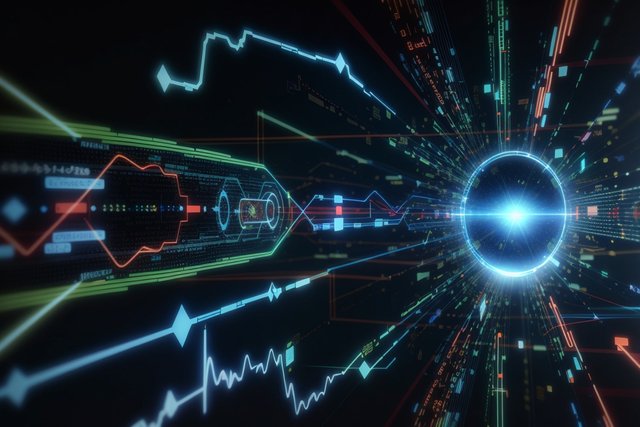Artificial intelligence (AI) is one of the most transformative technologies of our time, with the potential to revolutionize every aspect of our lives. It is already having a major impact on the economy, and its influence is only expected to grow in the years to come.
AI is already being used to improve efficiency and productivity in a wide range of industries, including manufacturing, logistics, healthcare, and finance. For example, AI-powered robots are automating tasks in factories, AI-powered chatbots are providing customer service, and AI-powered algorithms are making investment decisions.
AI is also creating new industries and markets. For example, the rise of self-driving cars and trucks is creating a demand for new AI-powered software and hardware. And the development of AI-powered medical devices and treatments is creating new opportunities for healthcare companies.
The economic impact of AI is still unfolding, but it is clear that it is a major driver of economic growth and change. A recent study by McKinsey Global Institute found that AI could boost global GDP by up to $13 trillion by 2030.
Here are some of the key ways in which AI is impacting the economy:
Improving productivity and efficiency: AI can automate tasks that are currently performed by humans, freeing up workers to focus on more complex and creative tasks. This can lead to significant productivity gains and cost savings for businesses.
Creating new industries and markets: AI is creating new opportunities for innovation and entrepreneurship. For example, the rise of self-driving cars is creating a demand for new AI-powered software and hardware. And the development of AI-powered medical devices and treatments is creating new opportunities for healthcare companies.
Changing the nature of work: AI is automating many routine and manual tasks, which is leading to a shift in the nature of work. Workers will need to develop new skills and capabilities in order to thrive in the AI-powered economy.
Impacting inequality: AI could exacerbate existing inequalities if it is not used fairly and equitably. For example, if AI-powered automation leads to widespread job losses, it could disproportionately impact low-skilled workers.
Overall, the nexus between AI and economics is complex and multifaceted. AI is having a major impact on the economy, and its influence is only expected to grow in the years to come. It is important to understand the potential benefits and risks of AI in order to ensure that it is used to create a more prosperous and equitable future for all.
Here are some specific examples of how AI is being used in different industries:
Manufacturing: AI is being used to automate tasks such as quality control, assembly line operations, and inventory management. This can help manufacturers to improve efficiency and productivity, and reduce costs.
Logistics: AI is being used to optimize supply chains, improve delivery times, and reduce transportation costs. For example, AI-powered algorithms are being used to route delivery trucks and schedule flights.
Healthcare: AI is being used to develop new drugs and treatments, diagnose diseases, and provide personalized care to patients. For example, AI-powered algorithms are being used to analyze medical images and identify cancer cells.
Finance: AI is being used to automate tasks such as fraud detection, risk assessment, and investment decision-making. For example, AI-powered algorithms are being used to identify patterns in financial data and predict market trends.
These are just a few examples of the many ways in which AI is being used in the economy. As AI technology continues to develop, we can expect to see even more innovative and groundbreaking applications.
The challenges and opportunities of AI
While AI has the potential to revolutionize the economy, it also presents some challenges. One of the biggest concerns is that AI could lead to widespread job losses. As AI-powered automation becomes more sophisticated, it is possible that many jobs that are currently performed by humans will become obsolete.
Another concern is that AI could exacerbate existing inequalities. If AI-powered automation leads to widespread job losses, it could disproportionately impact low-skilled workers. Additionally, if AI is not used fairly and equitably, it could lead to new forms of discrimination and bias.
Despite these challenges, AI also presents many opportunities. AI can help us to solve some of the world's most pressing problems, such as climate change and disease. AI can also help us to create a more prosperous and equitable future for all.
Conclusion
The nexus between AI and economics is complex and multifaceted. AI is already having a major impact on the economy, and its influence is only expected to grow in the years to come. It is important to understand the potential benefits and risks of AI in order to ensure that it is used to create a more prosperous and equitable future for all.
